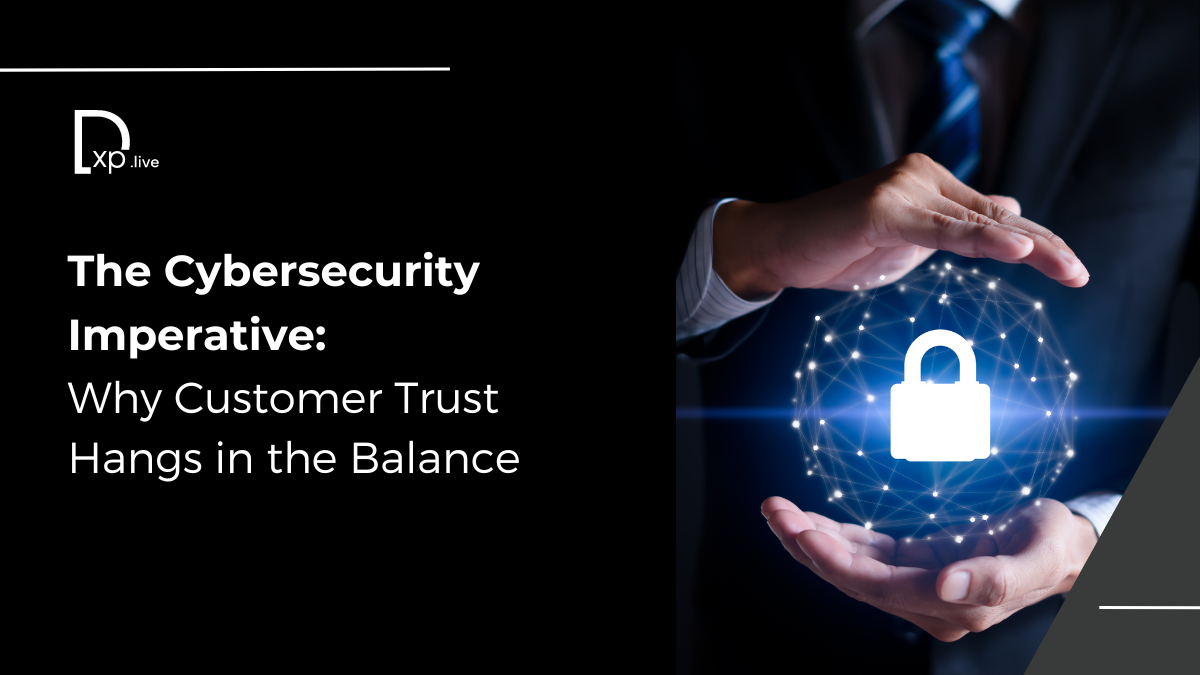The Cybersecurity Imperative: Why Customer Trust Hangs in the Balance

Cybersecurity today has emerged from the shadows of IT departments to command the full attention of boardrooms worldwide. A stark reality confronts business leaders: the gap between cybersecurity necessities and actual implementation remains dangerously wide. Recent findings by PwC reveal a troubling paradox - while cyber risks dominate corporate concerns and data breaches cost millions, only a mere 2% of businesses have implemented comprehensive cyber resilience strategies. This disconnect isn't just a technical oversight; it's a strategic blindspot that threatens the very foundation of customer trust and business sustainability.
Cybersecurity: A Cornerstone for Customer Trust
The PwC survey, encompassing responses from over 4,000 business and technology leaders across 77 countries, presents a grim picture: only 2% of organizations have successfully implemented cyber resilience firm-wide. This statistic is alarming, particularly in a world where the specter of data breaches looms large, carrying an average cost of $3.3 million per incident. Such breaches not only drain financial resources but also erode hard-earned customer trust and brand loyalty.
Why should business leaders care? Because a company’s cybersecurity posture directly influences its market standing and customer perceptions. Consumers are increasingly savvy about digital rights and personal data security, making cybersecurity a clear differentiator in the competitive market. Businesses that prioritize secure operations are not just protecting their data; they are also safeguarding their customer relationships and, by extension, their future.
The Trust Deficit
When we consider that the average data breach now costs organizations $3.3 million, we're no longer talking about abstract risks but concrete business impacts. Yet, the true cost extends far beyond immediate financial losses. In a landscape where customers increasingly value their digital privacy and security, every breach erodes trust - the cornerstone of customer loyalty and brand value.
The numbers tell a compelling story. Over three-quarters of organizations anticipate increasing their cybersecurity budgets in the coming year. This isn't merely a reaction to threats; it's a recognition that in today's digital economy, cybersecurity is inseparable from customer experience. When 57% of organizations cite customer trust as a primary driver for cybersecurity investment, they're acknowledging a fundamental truth: security isn't just about protection - it's about promise.
The AI Double-Edge
The emergence of Generative AI has opened doors but has also brought about a challenge. Two-thirds of leaders, who have invested more into GenAI, report that it expanded their attack surface. This modern business dilemma wherein innovation must go hand-in-hand with security is well portrayed by this technological double-edged sword.
New technologies for business leaders involve changes in implementations but revolve around customer relationships in an artificial intelligence world. When customers or rather consumers give their information to an organization, they're not just sharing information; they're extending their digital identity. How an organization acquires and retains this trust is critical as AI systems become increasingly integral in how a business interacts with the customer.
The Preparedness Paradox
Perhaps most concerning is the alignment between what organizations fear most and what they're least prepared to handle. The threats that appear on both lists comprise related threats, such as hack-and-leak operations, breaches from the third party, and attacks on connected products. This preparedness paradox highlights a critical need for strategic realignment. Business leaders must move beyond acknowledging risks to actively building resilience.
The implications for customer experience are profound. Customers don't just interact with a company - they engage with its entire network of partners, platforms, and products. A breach anywhere in this ecosystem impacts the entire customer journey. Forward-thinking leaders recognize that cybersecurity isn't a department - it's a mindset that must permeate every aspect of customer interaction.
Cybersecurity as a Competitive Advantage
While regulations drive 96% of organizations to increase cyber investments, visionary leaders see beyond compliance. They recognize that robust cybersecurity isn't just about avoiding penalties - it's about building a foundation for customer trust that becomes a genuine competitive advantage. Those who can genuinely assure customers of their data security and privacy don't just comply with expectations - they exceed them, turning security into a unique selling proposition.
The Investment Imperative
The fact that 48% of business leaders prioritize data protection and data trust as their top cyber investment speaks volumes. This isn't just about safeguarding information; it's about safeguarding relationships. When organizations invest in cybersecurity, they're really investing in customer confidence, loyalty, and long-term business sustainability.
For those still hesitating, consider this: the 30% of organizations increasing their cyber budgets by 6-10% aren't just spending more - they're investing in their future competitive position. In a digital economy where trust is currency, cybersecurity isn't an IT expense - it's a strategic investment in customer relationships.
However, funding alone is not enough. Organizations must also strive for a holistic cyber resilience strategy that integrates advanced technologies with robust policy frameworks and standardization. The survey highlights a notable gap in internal policies governing new technologies, a shortfall that could undermine the effectiveness of these investments.
The Integration of Security and CX
As we move forward, the integration of security into customer experience will become even more crucial. The businesses that thrive will be those that view cybersecurity not as a barrier to innovation but as an enabler of trusted customer relationships. They'll recognize that in a world where digital interactions dominate, security isn't just about preventing breaches - it's about enabling confidence and trusting customer engagement.
The message for business leaders is clear: cybersecurity can no longer be delegated solely to IT departments. It must be elevated to a strategic imperative, and integrated into every aspect of customer interaction and business planning. The goal isn't just to protect data - it's to protect trust, relationships, and ultimately, the business itself.
The Path Forward
For organizations looking to bridge the cybersecurity gap, the path forward requires a shift in perspective. It demands viewing cybersecurity not as a cost center but as an investment in customer trust and business resilience. It requires understanding that in the digital age, the strength of your security directly correlates with the strength of your customer relationships.
As businesses navigate this challenging landscape, one thing becomes abundantly clear: the organizations that will thrive are those that recognize cybersecurity as an integral part of their customer experience strategy. In a world where trust is increasingly digital, security isn't just about protection - it's about promise, performance, and competitive advantage.
Don't let cybersecurity concerns hold your business back. Sta ahead of the curve and turn security into your competitive advantage.
Visit our website to read our expert perspectives, and actionable strategies to build customer trust through robust cybersecurity. Because in the digital age, trust isn't just earned - it's secured.




